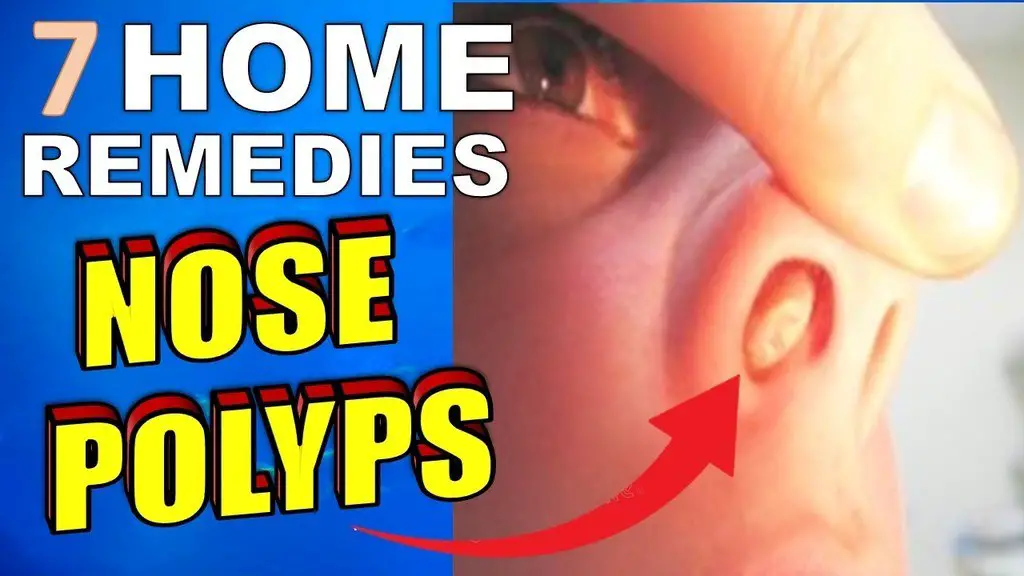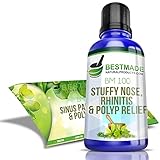Nasal polyps are small growths on the inside of your nasal passages or sinuses. They hang down, like teardrops, and are normally associated with inflammation and asthma, recurring infection, allergies, drug sensitivity, or certain immune disorders.
While nasal polyps aren’t dangerous, they can be fairly annoying to deal with. Symptoms of the condition include sneezing, a runny nose, stuffiness, or post-nasal drip. Polyps can interfere with your breathing, which may mean you need to breathe out of your mouth, causing dryness and sore throat.
It can also give you a distorted sense of smell and headaches. People with nasal polyps may snore as a result of their nasal passageways being partially blocked.
Treating nasal polyps
Smaller nasal polyps can be treated with prescribed medications that make the polyps shrink or disappear. In more severe cases, you might be offered surgery to remove the polyps.
It’s not vital that you seek medical attention for your nasal polyps, and if you’d rather avoid medication, there are plenty of at-home natural remedies you can use to treat the condition. Some of the most effective ways to shrink your polyps include:1. Cayenne pepper

Cayenne pepper contains capsaicin, which has been found in studies to help clear sinuses. It’s thought that capsaicin can relieve inflammation, open up nasal passages, and enhance immunity. This can play a part in relieving nasal polyp symptoms and the causes of polyps themselves.
To use: Sprinkle a liberal amount of cayenne pepper spice onto your foods or recipes. For most people, 1 to 2 teaspoons is a good amount.
2. Neti pot
A neti pot is a container that you can use to clear your nose of debris or mucus. It looks a little bit like a small watering can, with a spout that you use to send water through your nasal passageway. Experts think it can help symptoms caused by nasal polyps, as well as address the causes of polyps, like allergies or sinus infection.
To use: Fill your neti pot with warm water that’s either distilled or sterilised. Add in a sprinkle of salt to taste, then tilt the neti pot to your nostril, while keeping your head to the side. Let the water run through completely, then repeat on the other side. It helps to be standing over a sink while doing this.
3. Tea tree oil
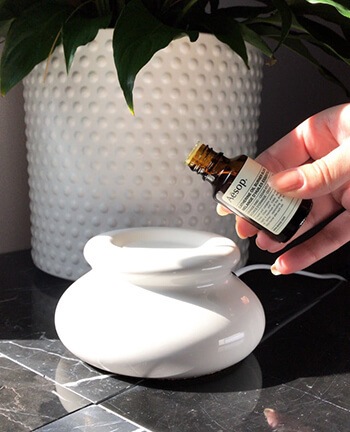
Tea tree oil is one of the most popular essential oils, thanks to its invigorating scent and its range of proven health benefits. The oil is antimicrobial and has been found in research to reduce itching and treat inflammation and infection. This may improve both the causes and symptoms of nasal polyps.
To use: Add 3 to 5 drops of tea tree essential oil to every ounce of your chosen carrier oil, such as coconut or olive oil. Tee tree oil is too powerful to apply alone, so adding it to carrier oil is essential. Use a clean cotton swab to gently dab the solution onto the insides of your nasal passages.
4. Inhaling steam
Similar to the neti pot, inhaling steam is thought to be a good way to treat common symptoms that are experienced with nasal polyps, like sinus inflammation-caused headaches. You can inhale the steam in the shower, while taking a bath, in steam rooms, or over a pot of boiling water.
To use: Simmer distilled or purified water in a large pot on your stove on medium heat. Wait for the steam to start rising, then lean over the pot and inhale through your nose. It’s important not to put the heat on too high, as the steam may cause burns.
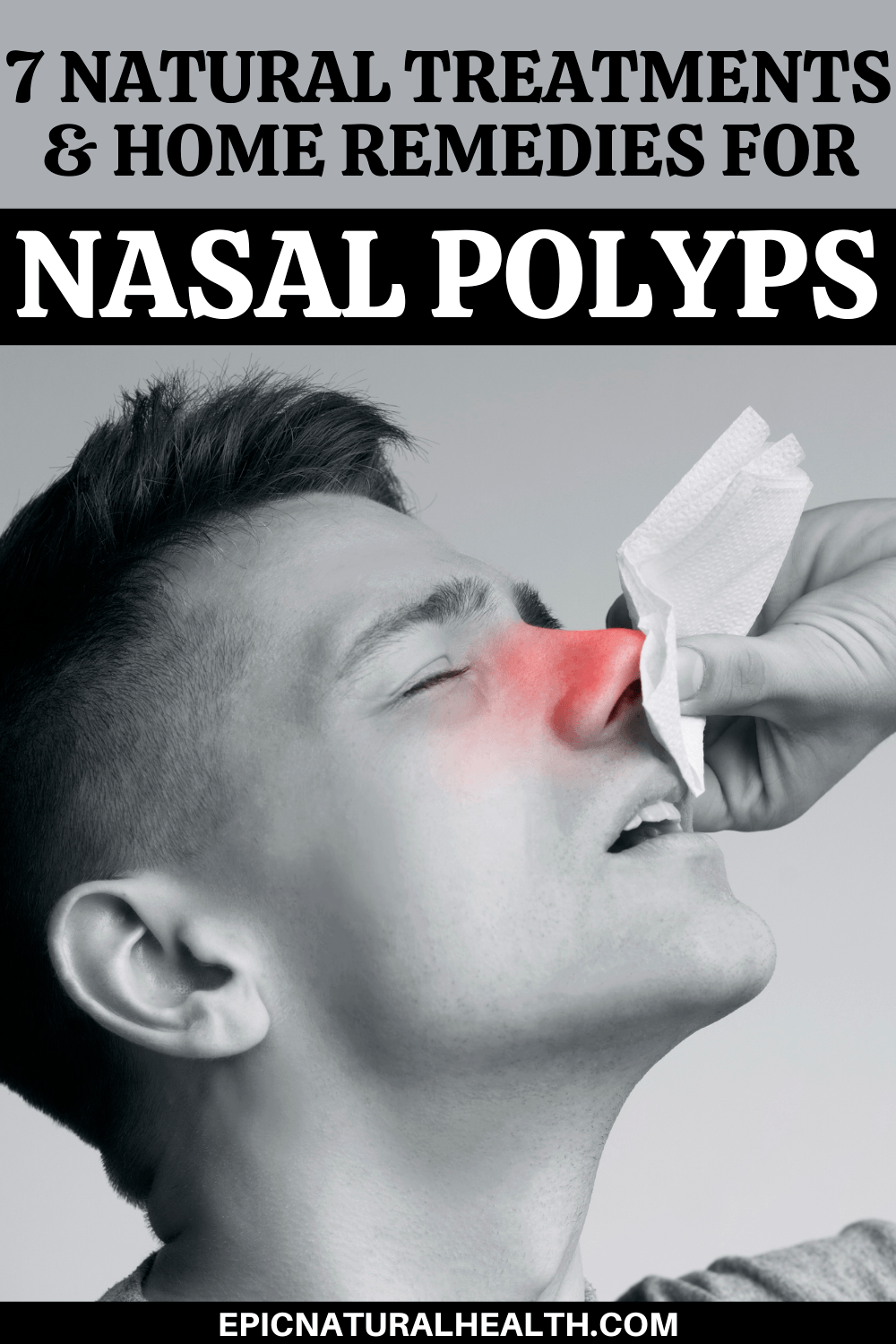
5. Chamomile tea
Chamomile is a popular flower used in tea and is known for its relaxing, soothing properties. It has also been used to soothe allergies and inflammation for hundreds of years. Chamomile tea may reduce symptoms of nasal polyps, like stuffiness and swelling.
To use: You can drink a tea made from standard shop-bought chamomile teabags for this, but the solution works best with chamomile essential oil. Add 3 to 5 drops of chamomile oil to every ounce of water, then gently dab it onto your nasal passages with a cotton bud.
- Bestmade Naturalproducts.com's Stuffy Nose Relief & Rhinitis & Nasal Polyps BM100 is a natural product designed to help reduce with nose relief in nasal passages that can cause polyps.
- This product can be used for help with sinus pain, congestion, runny nose, and seasonal allergies.
- The natural ingredients in this product help to soothe and calm the nasal passages, making it easier to breathe.
- This product is non-GMO, gluten-free, and safe for most people to use. It can be used alongside traditional medications.
- Experience all-day comfort with just two daily sprays
- For nasal congestion, runny nose, itchy nose, and sneezing
- Convenient and on-the-go
- Pocket-sized bottle fits easily into your bag for on-the-go relief
- Olive Leaf Nasal Spray, 1 oz - 1-Pack
- Safe, fast, and effective for the temporary relief of sinus irritations
- Homeopathic; Safe for Children; Chemical free; Pure natural ingredients
- Non-habit forming; Does not have the side-effects of modern pharmaceutical drugs
- NASAL SPRAY DECONGESTANT FOR SINUS RELIEF ---- Our effective nasal spray will rinse clean and moisturize the nasal canal tissues. It will help reduce symptoms caused by irritants such as bacteria, pollen, pollution etc. It also acts as a decongestant by focusing primarily on the root cause of congestion
- NATURAL INGREDIENTS ---- Saline solution specially formulated from natural sea salt and purified water, combined with a potent dose of propolis and xylitol that contains powerful oral and upper respiratory health benefits and yet a gentle relief and treatment for sinus swelling and congestion caused by irritants seasonal pressure, dust, sinusitis, rhinitis, etc.
- SAFE RINSE & SPRAY FOR NASAL PASSAGE ---- Our natural sinus cleaner is kids friendly, uses non-GMO and non-addictive ingredients and is proven effective against itchy, irritated nasal passage without the use of dangerous chemicals such as steroids and drugs. It acts as a natural solution that expands airways and reduces swelling
- HOW TO USE NASAL SPRAY EFFECTIVELY ---- Shake well before squeezing twice in each nostril as needed and the spray blows gently into your nose to clear congestion such as mucus. Each spray helps clear nasal congestion while gently soothing and moisturizing the nasal passages
6. Butterbur
Butterbur, not to be confused with the fictional beverage in the Harry Potter franchise, is a type of flowering plant in the sunflower family. There have been many studies over the years that have found evidence of butterbur’s benefits to sinus-related issues, like allergies, sinusitis, migraine, headaches, and even asthma. These issues may be caused by, or be a cause of, nasal polyps.
7. Turmeric
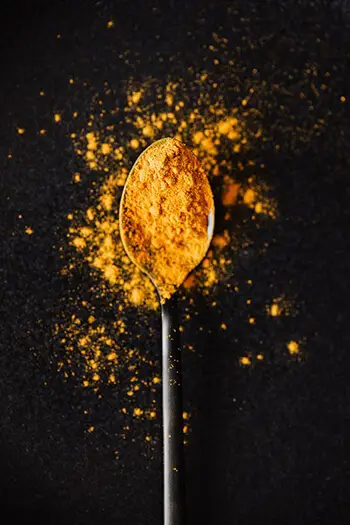
As something of a miracle spice, you can use turmeric for far more than flavouring your Indian curries. It’s famous for its anti-inflammatory benefits, and studies show it can help reduce inflammation and irritation of airways.
To use: Sprinkle a tablespoon of turmeric onto your savoury dishes. If you’re not a fan of the taste, you can also supplement with turmeric capsules.
Conclusion
You might not be able to fully eliminate your nasal polyps with natural treatments, but they’ll help you to manage your condition while seeking additional support when necessary. It’s worth visiting a doctor to get your polyps checked out anyway and to determine if there’s an underlying cause.

